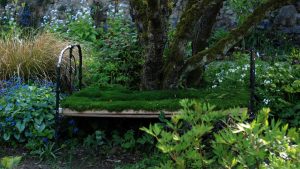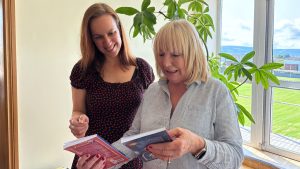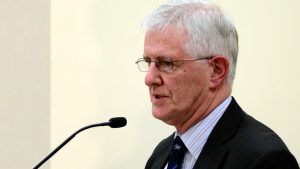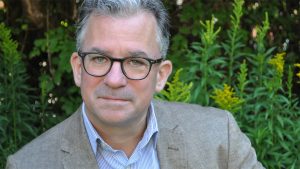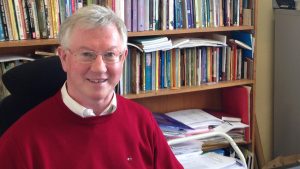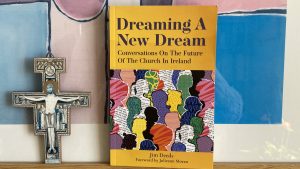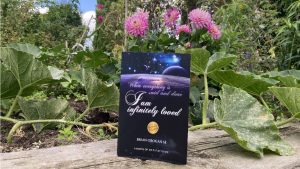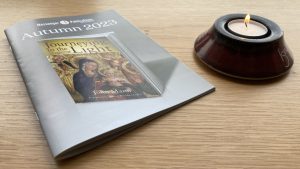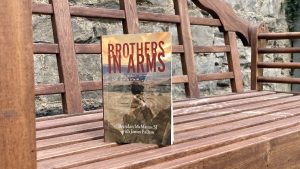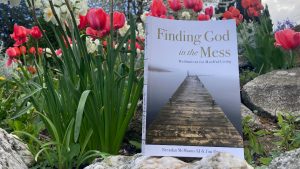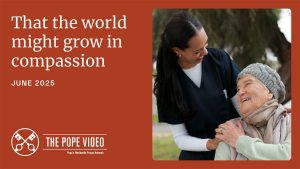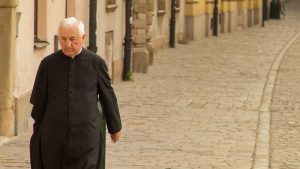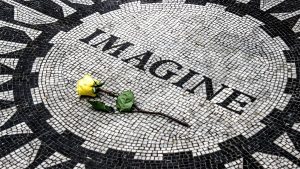15 aphorisms I wish I knew at 15 (Ignatian rules of thumb)

BRENDAN McMANUS :: I’ve had a great life as a Jesuit, before that working in the computer industry, and initially as a farmer at home in Fermanagh. The most valuable insights have come from the Ignatian training I have received, how to reflect on experience and make good decisions. Looking back from this perspective, I am writing to my 15-year-old self, a chaotic mix of ideas, drives and desires, as to what I have found useful ‘rules of thumb’ in my life. (Ignatian references in brackets)
1. There are no mistakes in life, only lessons.
There is no such thing as a bad experience, just opportunities to reflect and grow. The practice of reflection, looking back on past events with compassion, allows us to notice what was happening and learn from it. Labelling experiences as ‘bad’ or ‘disastrous’ doesn’t help as it distances us from them and we don’t learn anything. Some of the biggest learning opportunities in my life have been experiences that I initially resisted or thought were terrible, for example grief over the loss of a parent. We have to courageously face uninvited situations and work our way through them, for example, to understand the grief process as a way through, and then ironically this allows us to help others. Seeing them in a wider perspective reveals their true meaning as steps along the road. (God is in everything, especially those apparent messy failures)
2. Life is about the journey, not the destination.
I remember an old friar telling me that most people initially set about having a purpose or goal, success, money, fame etc., but later it becomes about meaning and doing something significant that helps the world. This was exactly my experience in working in the computer industry where I quickly got all the material possessions and status I thought I desired, but it was a desolatingly empty experience and prompted a search for my true vocation as a priest. At its heart this highlights that each of us has something unique to offer and happiness consists in working with this for others. There are often a lot of dead ends on this road of discovery though. (God is in our deepest desires, not the superficial ones)
3. Happiness is an inside job.
Our culture is often so focused on the trappings of success, wealth and consumerism that young people often get the idea that life is about the external things. It becomes about having, having a job, a car, a partner, possessions, a house, a beautiful body, a tattoo etc.. However, this is a sure recipe for shallow living and unhappiness by any spiritual or human standard. These things do not fill the human heart or bring any degree of satisfaction, much as their virtues are acclaimed and tapped into by every marketing and advertising means possible. The inner journey, being at home with oneself, not holding onto things too tightly and practicing compassion and self-less love are much more difficult but ultimately more fulfilling. (use the things of the world only insofar as they bring us to God)
4. The perfect is the enemy of the good.
In Ignatian Spirituality there is spelled out the terrible dilemma of life that perfection and idealism, while seemingly good things, can often lead to disillusionment and despair. What starts out as an apparent good, wanting the best, ends up being the unachievable ideal that we beat ourselves up over and agonise forever over its unattainability. Bringing these concepts down to earth and examining them in the light of human possibilities, is a much more productive way to go. Beginning with the current reality and working out incremental next steps is the way that the journey gets walked. Asking the question, “Is this really good; or where is this bringing me?”, is crucial in not simple buying into seductive idealism and unattainable perfection. Of course, the opposite extreme is also unhelpful: to simply accept the status quo and drift along. The thing is, there is normally a third option, or middle way, that threads a course between extremes. (The bad spirit appears as an angel of light)
5. Compare and despair.
I remember being struck when a US Jesuit quoted this on a project with young people that we were leading. Sometimes comparing ourselves to others and measuring ourselves externally is so much part of contemporary life that we don’t notice how much we do it and ultimately how damaging it is. Just look at all the magazines, TV programmes, ads, reality shows and celebrity websites that create such compulsive viewing about how others live. Unfortunately, it can create unease, real dissatisfaction, envy even, in comparing our own lifestyles. It is a sure fire recipe for disaster as comparing ourselves to others will always reveal that others are apparently stronger, faster, fitter, smarter, etc. (and never slow to offer lifestyle advice). It can take great courage not to go there or fall into that seductive trap, but any real happiness lies in a humble assessment of one’s own strengths and abilities, especially that there is something unique and gifted that points the way to how I can help make a better world (Real freedom consists in living from our true or deeper selves).
6. Build your house on rock, not sand, to withstand the inevitable storms.
Building is background work that can seem boring or pointless but suddenly becomes important in a crisis. This can be as simple as building up a store of resilience to ride out a storm, getting counselling or mental health tips or practicing spiritual techniques of meditation, reflection and awareness. This is crucial in getting perspective during inevitable traumatic events and to be able to deal with volatile emotions. The point is that the storms and crises will eventually arrive to your door and will test how well you have put the structures in place.
Accordingly, time of good weather should be used to build up a reserve and put structures in place that will see you through difficult times. Building on sand or not preparing at all will have serious consequences with things get tough. The inner resources, preparing, shoring up, and knowing oneself have an inordinate impact for good when they are needed. (Store up consolation for when desolation arrives; Don’t be tempted to undo good decisions when things get tough)
7. Bloom where you are planted.
One of the biggest psychological self-deceptions apparently is the mental trick: ‘if only I weren’t here this wouldn’t be happening to me’. All the energy and false thinking that goes into wishing things were different is wasteful and doesn’t help with the task at hand. In our heads it’s seductive to imagine things were different but it is a real trap as it seeks to escape and not engage the reality. The answer is to accept the reality of where you find yourself, especially that it’s never going to be ideal but that there are options and decisions to be made. I remember as a Boy Scout being taught that you always have enough in your environment to solve the problem. Therefore, instead of wishing it were different, look around and see what you can use. The Camino has its own formulation of this: The Camino provides. (You are walking on holy ground if you have the eye to see it)
8. Beware the silver bullet or magic formula solution.
In my work as a spiritual director and hearing people talk about their lives, I often hear of the illusive search for the ‘silver bullet’ or magic ingredient that will suddenly solve all life problems. Superhero movies, exploitative advertising and cheap TV sensationalism often fuel this fantasy. Unfortunately, this can often end in substance addiction, one dimensional personalities or quackery. The notion that one particular thing, if we could find it, would make all the difference has a powerful hold on people’s imaginations as internet ‘immediate’ solutions and miracle potions abound.
For most of us humans however, the reality is more mundane and process based: we have to apply ourselves on different levels (physical, emotional, educational, social, spiritual etc.) through effort and commitment across time with various institutions consisting of other human beings. This could be studying for a qualification, training for a goal, undertaking a course of therapy, committing to regular prayer or meditation. The ‘Road to Damascus’ conversion or instantaneous illumination often fizzles out without support, help and effort – even St Paul himself spent 10 years after falling off the horse before he became a disciple! (God normally does not appear in the miraculous but through human processes; ‘everyday’ miracles)
9. Fear is not a good counsellor.
Fear, anxiety and worry are a normal part of the human make up and their presence is often a given, but it’s how we deal with them that defines us. In our postmodern world there is a tendency to prioritise the emotions above all else (‘if it feels good do it’), and whereas this can often work out well, there are some obvious flaws to do with being swamped by sudden emotion. The most obvious one for people with a tendency to be fearful is to canonise that emotion such that it dominates all decision making. Of course, there is an opposite understandable reaction which sees us override all fear and behave recklessly. The point is that both are driven by fear and lack balance – fear can be a useful indicator to be cautious about some undertaking but taken to an extreme it is crippling and immobilising. The best formulation might be ‘feel the fear and do the best thing anyway’. (Have the courage to implement your best decisions)
10. Asking for help is the greatest wisdom.
With the complexity and pressure of today’s world there is a tendency to keep it all inside, like trying to contain a bag of monkeys eventually they all escape. Personally, I have seen the devastation that unprocessed emotion can do to a person. Nowadays however, the positive aspect of our society is that there is a variety of help available from doctors to counsellors and therapists of all sorts. Not everything is of equal value and some prudence is required but the relief in being able to unburden with a trusted other in a safe space is enormous. Often the obstacle is pride, independence and being afraid to be seen as weak or needing help. Ignatian wisdom has a really useful rule of thumb: you need to deliberately act against those negative impulses that stop us from getting the right help. The trick is to deliberately and actively seek out help and support for yourself, it is the greatest wisdom and it makes life a lot more bearable. (God is in the real, the genuinely human action)
11. You travel the world in search of what you desire, and return home only to find it there waiting for you.
I remember as a teenager wanting to distance myself from my Irish farming upbringing, feeling it was unsophisticated and not ‘cool’. Imagine my surprise to have travelled literally all around the world and return home to appreciate those very things I despised. My memories of summer harvest making and the beauty of being in nature have stood to me in terms of a 1000 homilies as a priest, some unbeatable stories about farming drama and the exquisite solidarity of family and close collaboration in earning a common living. I began to realise others hadn’t had those experiences nor the myriad skills and insights. Strange that something so mundane should turn into something so sublime; everybody has something to offer. (Come home to yourself and the beauty that is within you)
12. There are not limitless possibilities but possibilities within the limits.
How many sporting and motivational slogans have I heard that expound the philosophy that there are no limits whereas in my life I have discovered there are limits. For example, how long you can stay awake, walk, go without food, work hard etc. In fact, it has been instrumental for me to learn the limits of my body and how to act in ways more in harmony with its construction and inbuilt warning signs.
I have discovered that you can do an awful lot if you cover the bases of sleep, food, rest and support. In fact, having a sense of balance and perspective has been incredibly useful and facilitated me reaching some significant goals of pilgrimage (walking the Camino), collaborations, projects and meaningful friendships. My passion, walking the Camino, is a ‘long game’, a learning process and the Camino is a real teacher of humility and respect for limits. Hearing people, mainly young men, boast how they will walk twice as long and beat the ‘record’, never fails to amuse me as I was there once and have come to see the folly of pride! (Find a sense of balance and proportion in all things)
13. The darkest hour is before the dawn.
Naturally we want things to come easy and to avoid pain if possible. Ironically some of the most difficult experiences of my life have been the most painful but also rewarding in a paradoxical way: giving up my week paid IT job to join the Jesuits, adapting to chaotic but wonderful life in South America, the healing in walking the Camino in memory of my deceased brother. In each case things got worse before they got better. What really helped me was an article I read in Colombia about the process of entering into another culture. Naively we all assume things will get better with time, a linear progression, but in fact it is a ‘U’ shaped curve. There is an initial honeymoon period where everything seems wonderful, then the differences begin to grate, eventually you want to give up and go home as it is so difficult (the bottom of the curve), but if you can push yourself to reach out and make the effort to integrate, the rewards are enormous in terms of learning, surviving and thriving. This same pattern seems to apply to almost any human process of change: things get worse before they get better (this is also the spiritual process sometimes called ‘the dark night’ or the ‘Way of the Cross’). Understanding this process helps a lot in terms of knowing what to expect, getting your head right, and crucially how to manage in really tough times such that you come through and experience the light at the end of the tunnel. (You have to pass through the experience of the Cross or Passion to appreciate the light)
14. Believe in something bigger.
Inevitably a lot of this comes down to how you see yourself, the world and some kind of divine plan. Certainly, religions have their flaws and examples of institutional failure were never so blatant nor so catastrophic. What I am talking about is a personal experience, a network of meaning that explains the desperate tragedies and joys of life, and gives meaning to our actions. Otherwise it is all pointless as the existentialists claim.
However, I have discovered there is a layer of meaning accessible through prayer and reflection on experience, that reveals a clear path, that overrides the pretentious ego and wants to genuinely help people and the world. There is an essential connection between our inner lives, the divine love and being instrumental of love in the world. Consumerism and materialism are ultimately empty and unsatisfying as they undersell humanity and promotes crude selfishness. There is another way to live. (Trust yourself to a higher power; abandon yourself, get free of the ego)
15. Let life teach you.
Probably the most comprehensive saying of all is this one that catches up elements of all the above. There is an essential energy or force in life itself (some call this the divine or God) that is central to human living and flourishing. While there are many ideas, ideologies even, about how to live and what is important, there is no getting away from the vagaries and challenges of the actual life you live. How you play the particular cards you are dealt, the limitations of personality, genes, temperament, family, circumstances etc., is often what defines us. Often it is either an attitude of bitterness or gratitude about where you find yourself and how you engage with the concrete options you have available. There is no denying social and cultural injustices, they have a huge influence, but there is a fundamental choice about how we approach problems and opportunities.
The answers are often found in the messy and frequently complex reality in which we find ourselves. Pope Francis says that ‘God is in the real’, that God is immersed and engaged in the nitty gritty of our lives and though escape into fantasy is an option, that is not where the answers are. Unless you are fabulous wealthy and freed of normal constraints (insulated from reality), most people have to deal with advantages and disadvantages, negative and positive elements, that offer challenges and opportunities. Life has a way of testing us, presenting dilemmas and crises, that forces us to dig deep and try to discern a path through obstacles. Though the stakes are very high and consequences are real and imminent, there is normally a way through and hope is our guiding light. (God is with us in the mess)


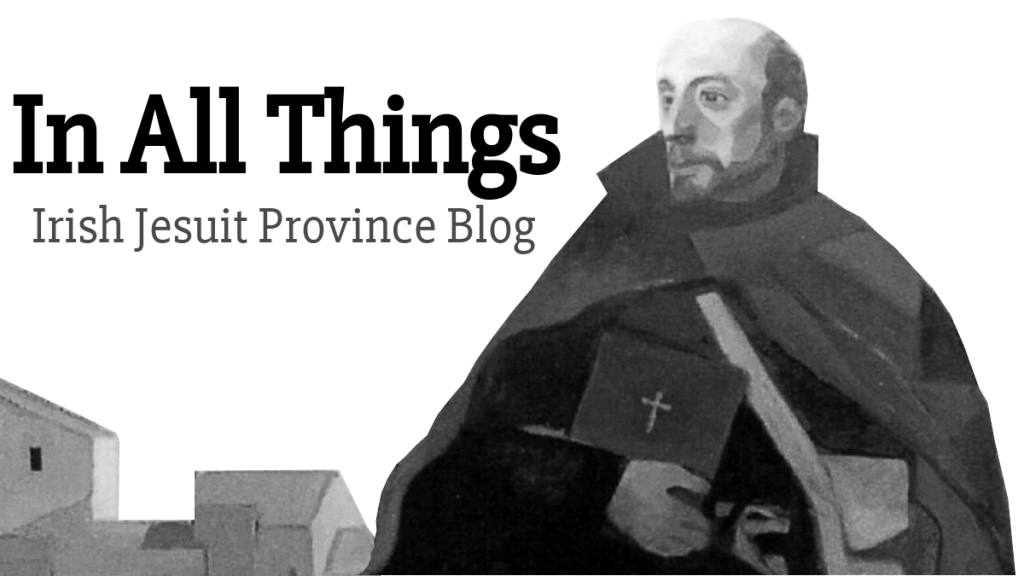
 Fermanagh-born Brendan McManus SJ works in the area of spirituality and spiritual accompaniment. He is the author of Redemption Road: Grieving on the Camino, a highly-praised personal reflection on healing and recovery. It deals with Brendan's experience on the Camino pilgrimage as part of his effort to come to terms with his brother's suicide.
Fermanagh-born Brendan McManus SJ works in the area of spirituality and spiritual accompaniment. He is the author of Redemption Road: Grieving on the Camino, a highly-praised personal reflection on healing and recovery. It deals with Brendan's experience on the Camino pilgrimage as part of his effort to come to terms with his brother's suicide.



